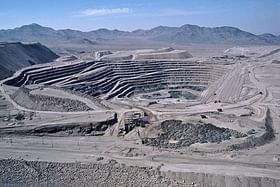State-run iron ore miner National Mineral Development Corporation Ltd (NMDC) is exploring lithium reserves, 124.3 miles (about 200 km) off Perth, Australia, company officials said on Wednesday.
“We are in the process of exploring (lithium) in Australia,” D.K. Mohanty, director production, NMDC, told reporters on the sidelines of an industry conference in Mumbai
The NMDC is a ‘Navratna’ public sector enterprise under the Union steel ministry and is the “single-largest producer of iron ore in India”.
“We are seeing positive results,” said Mohanty commenting on the lithium exploration process at the Mt Bevan mine in Australian. Further, in case an economical find is made, the mined material is expected to be shipped to India within two years, a second NMDC official said.
Mt Bevan Project
The Mt Bevan iron ore project owned by Hawthorn Resources and Legacy Mineral is situated 250 km north of Kalgoorlie and 100 km west of Leonora in the Central Yilgarn region of West Australia.
The project is a joint venture between NMDC’s Perth-based subsidiary, Legacy Iron Ore and Hancock Prospecting. Prospecting activities there include exploration and mining of rare earth and other critical minerals such as copper, tungsten, cobalt, nickel and lithium.
In India, the company has already obtained a prospecting licence to carry out exploration activities for lithium reserves in Karnataka. Work on exploration is yet to begin.
The development of the Yilgarn region of West Australia, in conjunction with Legacy which has the backing of major shareholder NMDC Limited and Hawthorn, which has the backing of some Chinese investors, has the potential for opening a new mineral province.
Lithium Criticality
The bedrock of EV transition, lithium is a non-ferrous metal and an essential material in the rechargeable lithium-ion batteries used for electric vehicles and energy-storage systems.
Lithium-ion batteries offer a longer life cycle as compared to traditional lead-acid batteries. However, the main reason for their high adoption in EVs is their high energy density. High energy density allows lithium-ion batteries to store more energy in less weight/volume, which is an ideal requirement for e-mobility applications.
Australia is among the top six lithium producers globally, along with Bolivia, Argentina, Chile, the USA and China.
Lithium deposits are critical for India as the country puts its focus on electric mobility for both public and private transport. ‘White gold’, is scarce in the country and as such India is import-dependent for lithium.
The country’s imports of lithium and lithium-ion in FY21 stood at Rs 8,984 crore in FY 21 and increased to Rs 13,838.22 crore in FY22.
India has initiated a concerted exploration push for the alkali metal by acquiring overseas mines as part of its efforts to secure supplies of lithium.









